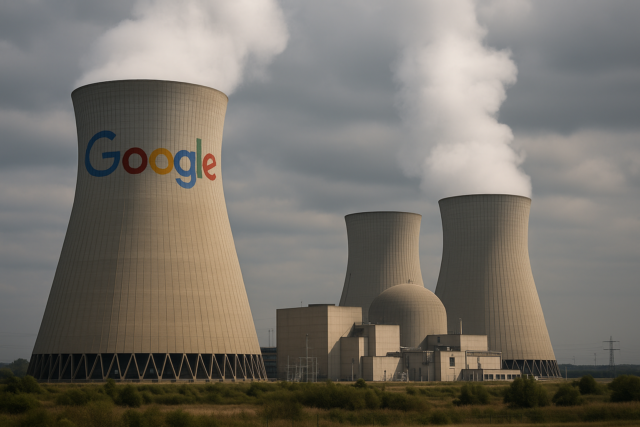Google backs Elementl Power to build advanced nuclear sites across America

Google is continuing its support of nuclear energy. Following an agreement with Kairos Power last year, the search giant just signed a new deal with Elementl Power to fund the early development of three advanced nuclear energy sites in the United States.
Each location is expected to support at least 600MW of power -- enough to keep the lights on for hundreds of thousands of homes. This partnership isn’t just about cleaner energy, however. You see, it’s also about securing reliable, always-on power for Google’s growing network of data centers, especially as artificial intelligence keeps ramping up demand.
Elementl Power, which was founded in 2022, isn’t married to any one reactor design. The company is technology-agnostic and describes itself as an independent power producer aiming to bring new nuclear capacity online by 2035. Google’s investment gives it a front-row seat for when those projects finally go live.
“Innovative partnerships like this are necessary to mobilize the capital required to build new nuclear projects,” said Chris Colbert, Elementl’s CEO. “We look forward to working with Google to execute these projects and bring safe, carbon-free, baseload electricity to the grid.”
Google also chimed in. “Our collaboration with Elementl Power enhances our ability to move at the speed required to meet this moment of AI and American innovation,” said Amanda Peterson Corio, who leads energy planning for the search giant’s data centers.
But let’s be honest, folks, whenever the word “nuclear” comes up, it’s hard not to think about Chernobyl. Or Fukushima. Yes, these new designs are said to be safer. Yes, the technology has come a long way. But should we be totally comfortable putting all this trust in advanced reactors, some of which haven’t even been proven at scale? We’re told this is the future of clean energy, but even the best-laid plans can go sideways. Accidents don’t care how modern your branding is.
Elementl says it’s still evaluating which nuclear tech to use and is working with utilities and regulators to get things moving. The company also says it’s being picky about engineering and construction partners. Hopefully, that caution carries through to execution.
This may very well be a turning point for energy in the United States. Or it could end up being another expensive experiment. Either way, Google’s backing shows that nuclear is back on the table -- whether we like it or not.
